|
Ancestral Journeys: The Peopling of Europe from the First Venturers to the Vikings
By Jean Manco Published in October 2013 304 Pages Thibault’s Score: 3/5 Ancestral Journeys is a book that explores the ethnic origins of Europe. The book uses the latest genetic, archeological, and linguistic sources to explain the peopling of Europe The book is divided into two parts. The first part explores the underlying scientific methods used; and the second discusses the actual historical population changes in Europe. The first part of the book is the most interesting. Instead of covering human population movements, it focuses entirely on explaining the underlying science. This part of the book was very interesting, and helped me get a much better understanding of genetics. The second part covers the population movements of Europe from the Mesolithic until the vikings. For example, it explains the destruction of the paleolithic monument builders of Britain at the hands of the Indo-Europeans steppe peoples. The sheer amount of movements of people, lists and haplogroups, etc… made it very repetitive and uninteresting. The book gave a really clear explanation of the utility and downsides of DNA testing. For example, it explains how Y-DNA is only found in patrilineal lines - it is only present in males, and passed from father to son. Mitochondrial DNA - or mtDNA - always comes from the mother. Every time someone is born and cells divide, mutations appear. The vast majority of mutations have no or almost no effects on the person inheriting them. These mutations can be tracked, which allows you to determine if two people were distantly related, and gives you a very approximate idea of when. DNA testing is very limited. When DNA testing was first discovered, scientists and archaeologists made many assumptions that led them to make mistakes. It was falsely believed that the mutation rate in between generations was constant. This meant that if you had an approximate estimate of how many mutations occur every generation, you could estimate the time at which two distant relatives were related. Later testing revealed that mutation rate in between generations varies depending on climate, genetics, and many environmental factors. As a result, many of the earlier findings were overturned. There are many other limitations. An isolated individual might travel a great distance, and end up in a population that is very far away. He may have many children, and those children might also be abnormally successful. As a result, a Y Haplogroup or mtDNA marker might be found in a population suggestive of a migration; but may only be the result of chance. Despite its limitations, population genetics still has enabled many important new avenues of historical and archeological research. Since the late 18th century, linguists have started proposing links in between languages. Linguists posited for example that many seemingly unrelated languages in Eurasia originated from a single group of steppe nomads that conquered the continent and replaced roughly half of Eurasia’s people. Evidence stemmed when linguists noticed similarities between distant languages such as Hindi and Welsh. By making lists of words, and seeing which languages shared which words, linguists came up with theories of interrelatedness which allowed them to make demographic predictions. Suppose that European languages such as Welsh, Russian, and French share the word for “Bronze” while Central Asian languages such as Hindi, Iranian, and Kazakhs share a different word. This suggests that the population that was at the root of these groups split before Bronze was invented. As a result, in the early 20th century, linguists developed theories about prehistoric population movements. In the 1970s, the tide of scientific opinion shifted, and linguistic evidence as a tool for tracing populations fell out of favor. Population genetics overturned the 1970s consensus, and verified that at least some of the linguistic theories about population movements seemed valid. Most significantly, the existence of the Indo-Europeans was proven. Almost all Eurasian populations that spoke an Indo-European language before the colonial era were found to be related to a group which archeologists call the Yamnaya. The name comes from their burial pits, and little is known about their language. They lived as steppe nomads around 3300 BC. It is unclear whether they rode horses or just used them as food and beasts of burden. Their “Yamnaya” style tombs can be found in eastern Ukraine and Russia. Over time, the Yamnaya fractured. Different groups very slowly, century by century, began migrating to different areas of Eurasia. They in turn fractured, then migrated. This process resulted in the spread of languages, ethnicities, and DNA of modern Eurasia. I recommend reading the first half of the book to understand how the underlying science of population genetics works. The second half was interesting, but would be hard to follow without significant additional research.
0 Comments
How the West Stole Democracy from the Arabs: The Syrian Congress of 1920 and the Historic Liberal-Islamic Alliance
By Elizabeth F. Thompson Published in 2020 496 Pages Thibault’s Score: 2/5 I quit reading this book after the first chapter because it has all of the red flags of bad history books. First, the author is a Washington DC academic. Second, she is trying to prove a point rather than tell a story. Third, the point she is trying to prove is that there was a political alliance between pro-democracy liberal muslims and some Islamic clerics in the aftermath of World War One. Books that try to argue for something, rather than tell a good story, are always boring. Also, I get the sense from her language (although I may be wrong, because I didn’t read further) that “democracy” and “liberal” are actually codewords for leftist or socialist. I don’t doubt the historicity of her claims, but I probably would interpret the facts differently. Thompson’s mind-blowing revelation is that within Islam, there is a leftist-pro democracy strain. This revelation is completely obvious and banal to me - because I have traveled to the Middle East and been studying Islamic history for three years. Most of her arguments seem like they will focus on refuting the stereotype that all Muslims are regressive religious fanatics, and that this leftist faction is - indeed - real. She also joyfully explains that many of these are influenced by native ideas, rather than foreign ideas. Sadly, I would agree with her on this point. Indeed, there have been many ancient groups of Islamic proto-socialists. Many caliphates created welfare states in the years before their decline which they referred to as “the House of Money.” Many interpret Zakat as coercive economic redistribution rather than a voluntary donation. Factions such as Azariqa Kharijites or the Sufi dervishes can be seen as proto-socialist groups. By contrast, others such as the Ibadis or Mutazila can be seen as proto-libertarian capitalists. Islam is not homogenous. The struggle between leftism and freedom has a very long history within Islam. I have met many “muslim” World Bank economists and Hijabi feminists over the years. These nominal Muslims agree with all of the political ideas promoted by our liberal and leftist ruling class. Ironically, I would disagree with Thompson only insofar as I see these “moderate” and “modern” Muslims as my enemies; and the “radical” “regressive” religious Muslims as my allies. To summarize: this book's lessons and history are obvious. I don’t like the author’s background (Washington DC academic) and I hate the writing style. A Peace to End All Peace: The Fall of the Ottoman Empire and the Creation of the Modern Middle East
By David Fromkin Published in 1989, Updated in 2015 635 Pages Thibault’s Score: 5/5 Introduction Over the last four months, I have read half a dozen books on the fall of the Ottoman Empire. This one is, by far, the best. First, the writing style is excellent. Fromkin uses a simple Spartan style that avoids unnecessary attempts at poetic descriptions, academic nitpicking, and eschews the many distractions that you find in poorly written histories. It is to the point, and concise. This is how all history books should be written. In terms of the content, the fall of the Ottoman Empire is extremely complicated and multi-faceted. Many unrelated events occur at once, only to intertwine and interact later. For example, the shadowy British “Milner Group” which secretly controlled the British Empire during the tenure of Prime Minister Lloyd George interacts in strange ways with the Soviet Revolution, which in turn interacts with the Armenian genocide. Complicating the matter is that the Milner Group, the Soviet revolution, and the Armenian genocide are otherwise unrelated events. Against all odds, I was able to follow as Fromkin explores these - and many more - parallel strands. I am not going to summarize the entire fall of the Ottoman Empire and European colonization of the Middle East in this book review. Instead, I will cover three very interesting details covered at various points in the book: the rise of Arab nationalism, the diplomatic relationships between the Soviet Union and Ottoman Empire, and the Milner Group’s influence over British politics. Artificial Arab Nationalism One of the most mind-blowing stories in the book was the revelation that Arab nationalism is a completely artificial concept. For a student of history, like myself, this makes complete sense. There is no organic “arab” nation anymore than there is a “white nation” or an “east asian” nation. In fact, white nationalism is repulsive to the overwhelming majority of whites the same way that the WW2 era Japanese East Asian Co-Prosperity Sphere was to most East Asians. Arab nationalism is a concept that was created by British agents during World War One. The British, who were at war with the Ottomans, quickly realized that they would need something to replace the Ottoman Empire once it fell. The problem was that the people of the Levant, Arabia, and Mesopotamia had only been unified under multi-ethnic and supranational medieval caliphates. Traditional Islamic concepts of nation do not favor ethnonationalism or the nation states; instead Islamic empires have historically been multinational, multi-lingual, and multi-ethnic. British agents wanted to create a synthetic “arab caliphate” that would be led by their puppets, the Hashemite family of Mecca. To do this, British propagandists subverted Arab liberals and leftists. The British propagandists managed to convince many Arab intellectuals that the only way to create a secular modern state in the Middle East would be to reject Islam in favor of ethnonationalism, along the lines of the artificially created Yugoslavia which also appeared at roughly the same time. Ultimately, the British attempts at creating the caliphate imploded. Representatives of the Hashemite family were placed on the thrones of Mecca, Jordan, Syria, and Iraq. Almost immediately, they were overthrown in Syria. In Iraq, they would be overthrown a decade later. Another pro-British group (the House of Saud), operating against British orders, fought a war with and eventually drove out the Hashemites from Mecca and Medina, creating a state that we today call Saudi Arabia. Today, Jordan and its royal Hashemite family are the last remnants of the attempt at creating a British Caliphate. Interactions Between the Ottomans and Soviet Union Historically, the Ottoman Empire and Russian Empires had been fierce rivals for control of the Black Sea. Geographically, the conflict is inevitable: Turkey controls the only access point for Russia’s Crimean and Ukrainian warm water ports. In 1917, a liberal revolution overthrew the Tsarist regime. Several months later, the liberal revolutionaries were themselves overthrown by communist radicals, and the Soviet Union was born. The communist revolutionaries faced a very tough decision: how to square their radical idealistic ideas with the cruel realities of statecraft. Notably, Lenin argued on the basis of communist ideology that all of the Turkic Islamic peoples of Central Asia and the Far East should be allowed to secede if they wanted to. Not all communists agreed; most notably Stalin believed that they should be even further integrated into Russia. Around the same time, Turkish nationalists had created the ideology of pan-Turanism. The core idea behind pan-Turanism was uniting all of the various Turkic peoples into a single megastate that would include all of the former Ottoman Empire and all of the Turkic speaking areas of the former Russian Empire. During the time of the Russian revolution, Turanist ideas were spreading in the far east. The communist revolutionaries realized that the Turkic states wouldn’t just be lost if they were allowed to secede - but would actually be liable to join into a renewed Ottoman Empire, which was a historical rival. The Communist Russian government responded by enlisting former Ottoman official Enver Pasha. Enver Pasha was a known anti-communist, as well as one of the key perpetrators of the Armenian Genocide. However, after the Kemalist uprising in Turkey, he found himself in exile in Germany. From there, he went on a long and perilous journey through war-torn Eastern Europe to Moscow, where he would be captured and imprisoned several times by various nationalistic Polish and Lithuanian military groups. After a year-long journey, he arrived in Moscow, where he was shunned. He offered his help to the Soviets in exchange for support in defeating the Kemalists at home. The Soviets accepted, and sent him on a mission to suppress Turanist sentiments in Central Asia and the Far East. Ultimately, he was killed while working for the Soviets in Bukhara in 1922. The Milner Group The last fascinating part of the story could be mistaken for a wild conspiracy theory if it wasn’t so well documented. On the eve of World War One, a shadowy cabal of high-level British politicians, businessmen, and military figures started gathering in secret dining clubs. This group has variously been referred to by historians as “Milner’s Kindergarten,” the “Milner Group,” or the “Round Table club.” The name comes from its informal leader, Lord Alfred Milner. Their goal was to centralize the British Empire into a commonwealth, with the eventual idealistic goal of creating a sort of proto-fascist Anglo-Saxon world government. This scheme combined both socialist economic ideas with eugenics and Anglo-Saxon ethnic supremacy. Although this book doesn’t cover this group’s origins with British business magnate Cecil Rhodes, it discusses their involvement in the partition of the Middle East at length. Although it isn’t discussed in this book, the context is key. Lord Milner had spent the years from Cecil Rhodes’ death in 1902 until 1909 training a group of young men to play leading roles in the British government. The Milner Group mostly existed as an idealistic informal collection of dining clubs before World War One, and any power or influence that it wielded was mostly incidental. A Peace to End All Peace picks up in 1916. With this additional context, I found the extensive discussions about the Milner Group to be very interesting. In late 1916, the conservative government of conservative liberal British Prime Minister H. H. Asquith collapsed due to failures in the war. Asquith resigned. As a result, a complete political outsider - the radical David Lloyd George - was elected to lead the liberal party. One month later, in December 1916, he was elected to replace Asquith as prime minister of the UK. Lloyd George had only held marginal political roles, and lacked the network or power to effectively govern. In many ways, his tenure can be seen as loosely similar to that of US president Jimmy Carter. Lloyd George was very close friends with Lord Milner, and enlisted Milner’s help to staff his new government. Milner happened to have personally trained, groomed, and selected many young men in the previous decade for potential government jobs. These included figures such as future Prime Ministers Winston Churchill and Nelville Chamberlain, as well as prominent businessmen and intellectuals such as Llionel Curtis. As a result, some of the young men groomed by Milner ended up in key government roles during Lloyd George’s ministry. Although most of the Milner Group formally stayed out of government, they corresponded very closely with the members of Milner Group who had stayed out of power. As a result, the Milner Group would become the informal deep state of the UK from 1916 until the end of World War Two in 1945. The second half of this book extensively draws upon the private correspondence of members of the Milner Group with government officials. For example, Leo Amery, who would be a prominent politician during the interwar years and World War Two, held significant informal sway during the waning years of World War One. Most fascinatingly, many members of the Milner Group seemed to be under the impression that they were fighting a second, secret deep state composed of Jewish former Freemasons. They believed that this group was behind both the Young Turk revolution in Turkey and the Bolshevik revolution in Russia. On the basis of this information, they discussed internally whether this group needed to be destroyed or appeased. One of the key reasons why the Milner Group decided to create Israel was an attempt to appease this group. I was shocked to read that it appears that at least some Jewish former Freemasons actually were behind both the Turkish and Russian revolutions. Russian born British spy Alexander Halpern supported both the Turkish and Russian Revolutions, as well as promoted zionism in the UK. Halpern helped spread rumors of a Jewish Freemason conspiracy, because it allowed him to lobby the Milner Group more effectively. It is important to note that, for the most part, it seems like the existence of a Jewish Freemason deep state was mostly exaggerated. At the end of the war, the Milner Group also began successfully influencing domestic politics in the United States. Many individual members of the Milner Group had extensive family ties with American families, and in particular, with the Woodrow Wilson administration. When Woodrow Wilson came to the UK, his long time advisor the Rockefeller lobbyist Edward Mandell House was coaxed by British agents to abandon the president. Isolated, Wilson found it difficult to meaningfully participate in the Paris Peace Conference. Lloyd George’s agents studied Wilson very closely, and helped Lloyd George frame all issues in terms that Wilson would find favorable. Wilson was a major supporter of the right of national self determination - the idea that each ethnic group deserved its own territory. The Milner Group’s main goal was to extend the influence of the British Empire. During the conference, the Milner Group framed all proposed peace treaties in terms of creating independent ethnic nation states that would merely be temporarily protected by Britain. Furthermore, British agents gave Wilson misleading ethnic, historical, and demographic information to support their claims. As a result, President Wilson publicly opposed British and French Imperialism; but ultimately greenlit many of the Milner Group’s proposals. This gave British imperial claims the veneer of legitimacy, as they were being pushed by the United States. The ultimate result was that, for the most part, Britain got everything it wanted in the Middle East. Conclusion There are many, many, many more fascinating stories discussed in this book. For example, I had no idea that France and Germany were covertly attempting to outmaneuver each other to gain control of the Middle East in the last days of the Ottoman Empire. France and Britain went as far as fighting proxy wars, using unwitting Arabs as their pawns. I also had no idea that the Egyptian British protectorate was a bitter rival of the Indian protectorate, and both covertly lobbied the Milner Group to extend their influence over mesopotamia. Finally, I didn’t know that there was a failed communist revolution in Islamic Iran. This book was a never ending series of fascinating insights and revelations. As advertised, it gave me a window into World War One and the creation of the modern Middle East. But it also gave me insight into how a modern deep state might quietly operate. It is a shame that the author, David Fromkin, died in 2017. His incredible contributions are needed more today than ever before. If you want to learn more about the chaotic last days of the Ottoman Empire, then I recommend this book very highly. Operation Nemesis: The Assassination Plot that Avenged the Armenian Genocide
By Eric Bogosian Published in 2015 400 Pages Thibault’s Score: 4/5 In 1921, former Ottoman grand vizier (head of state) Talaat Pasha was assassinated in Berlin. The killer was young Armenian veteran and genocide survivor. German authorities initially charged the young killer with murder - but, surprisingly, the killer was acquitted by a jury. German courts refused to prosecute a killer for avenging the genocide. At the time, it was believed that the murder was an isolated incident. The light of history has revealed much about this case. In fact, the killer had been hand picked by a conspiracy of leftist Armenian revolutionaries hoping to publicize the genocide. They knew that the assassination would become a major media event and wanted to make sure that the killer was charismatic and sympathetic. The conspirators were shocked by their own success. They expected the killing to draw attention to the genocide; but expected that the killer would get sent to prison. To their surprise, all charges were dropped. Talaat Pasha wasn’t the only war criminal assassinated by the Nemesis conspiracy. Six other war criminals were hunted down and assassinated by Nemesis in Georgia, Berlin, Rome, and Turkey. British intelligence seems to have had some role coordinating and manipulating the assassins; although the assassins were not aware that they were tools of the British. Documents published decades after the fact revealed British agents discovered the location of Talaat Pasha, while at the same time spying on the Armenian conspirators. When the British found out that the Armenian conspirators were investigating a man they believed was Pasha, the British then quietly leaked information to the Armenians confirming the identity of the target. This is a fascinating well researched historical novel that reads like a spy thriller. You get a sense of what being on the ground in the wake of the Armenian genocide would have been like; a well as the day to day life of the assassins who would avenge the genocide. If anyone wants to learn about a wide range of topics such as the aftermath of WW1, the Armenian genocide, or early 20th century espionage, then I strongly recommend this book. They Can Live in the Desert but Nowhere Else
By Ronald Grigor Suny Published in 2015 518 Pages Thibault’s Score: 2/5 This book is awful, and I didn’t finish it. It starts off as a fairly standard academic account of the Armenian genocide. However, very quickly, problems start manifesting. First, it commits the crime of jumping around chaotically. The first few chapters haphazardly move from the history of the Ottoman Empire during WW1 to the medieval kingdoms of Armenian Cilicia then back to the early 19th century breakup of the Ottoman Empire. If I hadn’t spent much of the last year studying Ottoman, Byzantine, and Armenian history then I would have found it very hard to follow. However, the gravest crime which ultimately caused me to put the book down was committed several chapters later. Suny engages in what I can only characterize as victim blaming. He says that capitalism is ultimately to blame for the destruction of the Armenian people. He points out that the Armenians were a merchant people, which made them more successful when capitalism arrived in Turkey. As a result of their success, the Muslims found themselves left behind. He describes the genocide as “a class conflict which took on racial overtones.” Although the facts he discusses seem correct, the way he discusses them was absolutely repulsive. I interpreted his writings as subtly implying that the slaughter would have been justified if it had not crossed racial lines, and had been confined to a class conflict. Suny and I see the same facts, but have completely different interpretations. In the context of 20th century genocides, I often see minorities achieve success due to a combination of genetic and social factors. For example the Tutsi, Jews, and Armenians all had high-IQ, productivity driven, and pro-family lifestyles. This allowed them to outcompete their lower IQ, less productive, and less socially conservative peers. Similar patterns can be seen with the non-racialized slaughters of Stalin, Pol Pot, and Mao. Clever and successful people are persecuted by the dumbed down masses for being economically productive. In my worldview, the Armenians deserve better outcomes than the Turks because they are hardworking. If the tides of history change, and the Armenians become decadent while the Turks become more virtuous, then I would make the case that the Turks should become wealthier. I think that this worldview is fundamentally non-violent, because it sees disparities and hierarchy as natural rather than as problems that need to be corrected. Suny sees the Armenian success as problematic. He implies that if there had been socialism, the genocide wouldn’t have occurred, because the races would have been more equal. The way he made this point felt extremely disrespectful. Unintentionally, this book gave me some insight into some of the left-right conflicts that I saw when I visited Armenia and gathered from speaking to my Armenian friends. Stranger still, Suny is Armenian. This book made me reflect that Armenians with Dashnak sympathies are communists first, and Armenians second. Many communists, whether Jewish, Congolese, Chinese, or Arab often will make decisions that favor other communists rather than their historical ethnic kin. If the Armenians are the capitalists, then the Turks are at least partially justified for wanting to level the playing field. I don’t recommend reading this left-wing rag of a book. Instead, if you want to learn about the Armenian genocide, I would suggest The Great Catastrophe by Thomas de Waal. The Great Catastrophe
By Thomas de Waal Published in February 2015 320 Pages Thibault’s Score: 4/5 Writing about genocide is hard. People hate reading lists of atrocities followed by more atrocities. Further complicating the issue is the fact that the Armenian genocide was two sided. Although more Armenians than Turks were slaughtered; the killing went both ways. Although few people want to study genocide, doing so is a moral imperative - failure to do so is bound to result in more atrocities. Considering the challenges that surround writing about such a contentious topic, Thomas de Waal did a phenomenal job. In 1915, the Ottoman Empire was dragged into World War One. The backwards, outdated Ottoman military stood little chance against the superpowers of Russia and Britain. Worse, the Ottomans had just recently come out of three decades of nonstop war which resulted in the secession of most of the Christian Balkan states and loss of North Africa. The war-weary and tired Ottoman population came to resent the Armenians for many reasons. First, the Armenians were a highly educated and intellectual minority group. Armenians occupied many high level government positions, and many of the wealthiest people in the empire were Armenian. Second, Armenians held strong cultural ties with Europe. Armenians did not dress in traditional Turkish garbs, and instead wore the clothing of Europeans. Finally, many Armenians resented the Turks after centuries of oppression, and had strong sympathies with Russia and Britain. Many Armenians went as far as going into open rebellion against the Ottomans, and massacred small groups of Muslims in contested areas. It is important to note that only a small handful of Armenians rebelled against the Ottoman Empire. The Turkish solution was to eliminate all non-Turkish populations. Several groups of Christians - namely Armenians, Assyrians, and Pontic Greeks - were marked for extermination. What followed would be the wholesale destruction of 1.5 million Christian civilians. Many reprisal killings against Turks would later follow, with some resulting in massacres and rape of tens of thousands of Turkish civilians. The Armenian genocide itself only accounts for one third of the book. The following two thirds follow the history of the Armenian diaspora in the United States and Europe, and of the Soviet Armenian state. The book ends with a short account of the wars in between Armenia and Azerbaijan. I found the latter half of the book, which explains what happened to the Armenians after the genocide, to be the most fascinating part of the story. First, what shocked me / terrified me is that many Armenians attempted to deny that the genocide had occurred. Many of the direct victims of the killings were traumatized, and preferred to forget the events of 1915 rather than speak about them. Women who were captured and taken as sex slaves or forced brides adopted new Turkish identities and did their best to forget that they were Armenian. Other Armenians were themselves implicated in war crimes or revenge killings, and also chose to forget. Early Armenian attempts at erasing the genocide would later on be used by Turkish nationalists to perpetuate the idea that the genocide had never occurred. Second, the book explains how the term “genocide” came to be applied to what we today call the Armenian genocide. In 1915, the word “genocide” did not yet exist. Instead, people at the time referred to it as “the Great Catastrophe.” The word “genocide” was coined during World War Two by a Polish social scientist Raphael Lemkin commenting on the Holocaust. Lemkin specifically cited several past events which he believed to be genocides in his initial writings about the topic, such as the invasion of Ghenghis Khan, and importantly, the Armenian genocide. Some Armenians began immediately using the word “genocide” after Lemkin created the term. Finally, the coverage of the conflict between the pro-communist and anti-communist Armenian groups was fascinating. Some Armenians saw Russia as the liberator which protected the Armenians against Turkey; others saw it as a second oppressor and the perpetrator of a second genocide. In many ways, this conflict still exists today. The nation of Armenia finds itself uncomfortably wedged in-between two major enemies - Turkey and Azerbaijan. Many believe that, without Russia, Armenia would have already been overrun. I highly recommend this book for anyone who wants to study Armenian history as a starting point. The Ottoman Endgame: War, Revolution, and the Making of the Modern Middle East 1908 - 1923
By Sean McMeekin Published in 2015 592 Pages Thibault’s Score: 4/5 The collapse of the Ottoman Empire is one of the most important events in Middle Eastern history. Its age of decadence, followed by a century of civil wars, ultimately culminating in its defeat during World War One is the event that drew the borders of the modern Middle East. After spending the last year studying Ottoman History, it has been really mentally difficult for me to “bridge the gap” and understand how the events that I have studied resulted in the modern world. I love the writing style. The book is fast paced, incredibly clear, and easy to follow. Even without extensive background knowledge about the 20th century I was able to follow the events fairly well. The big picture geopolitics are very well explained; as well as the microscoping depictions of epic battles. In its last days, the Ottoman government found itself increasingly influenceable by European powers. As the Ottomans grew ever more economically and technologically backwards, it became increasingly easy for lobbyists backing various European factions to push the government one way or another. At different times, the Ottomans found themselves under the influence of pro-French, pro-German, and pro-British factions. As a result of this, it found itself in the dystopian position of constantly changing its alliances. One year, the Ottomans were at war with Serbia. The following year they were allied to Serbia, and at war with the Russian puppet of Bulgaria. Two years later, they were now allied to Bulgaria, and at war with Russia. The shifting constellation of alliances and allegiances isn’t the most important part of the story. The details of events in 1913 don’t matter very much when it comes to understanding the ultimate destruction of the Ottoman Empire. What matters far more is the fact that slowly, the Ottomans became so weakened they could do nothing other than serve the whims of various European masters - although no master had a monopoly. One fascinating microcom of the broader picture depicted by the book is how the Ottomans ended up joining the Central Powers during World War One. For centuries, the Ottomans had fought bloody wars against the Habsburgs for control of the Balkans. It would be fair to go as far as describing the Austrians as the traditional ethnic enemies of the Turks. In part as a result of their anti-Habsburg history, the French began supporting the Ottoman military through technology transfers and training programs. In the years leading up to World War One, the Ottoman army also began receiving similar material support from France’s enemy, Germany. Germany hoped to undermine France’s influence in the empire by providing similar levels of material and technical support. When World War One broke out, the Ottomans were initially neutral. On one hand, the Ottomans were long term rivals of the British who had supported Greece independence. The Germans promise to undermine the old geopolitical order and restore the Ottomans to power. Conversely, the French either urged neutrality or urged the Ottomans to join their fight against Austria and Germany. Furthermore, Bulgaria, the Ottoman Empire’s long term enemy, looked like it would imminently join the side of the Central Powers. However, France was allied to another long term Ottoman enemy: Russia. The first year of World War One was marked by political gridlock with pro-entente and pro-central powers lobbyists each attempting to force the Ottoman Empire to join a different side of the conflict. Out of the blue, the Germans would stage a geopolitical coup. German officers, who were already embedded in the Ottoman army, disguised themselves as Turkish sailors. They then commandeered an Ottoman ship, and began bombing the Russian embassy’s beachfront complex. Pro-German factions within the Ottoman government, who were likely working in league with the Germans, immediately published a deceptive account of the events that made it sound like the sailors had been Turkish rather than German, and that the Russians had made the first move, attacking them. Within days, the Russians retaliated by declaring war against the Ottomans. By the time the deception was figured out, it was too late. Britain had already deployed warships to launch a joint British-Russian invasion of Turkey; and the Ottomans were forced to defend themselves. The pro-entete faction of the Ottoman government would either fall in line, be executed, or go into exile. The Ottoman entry into World War One is just one - of many - fascinating events covered in this history. Others included the role of communist revolutionaries in ending the war, the stunning British failure in Gallipoli, how Saudi Arabia got its independence, and the Ottoman civil wars that would result in the creation of Turkey. I highly recommend this book to anyone who wants to understand why Turkey exists. The Greek Revolution: 1821 and the Making of Modern Europe
By Mark Mazower Published in November 2021 608 Pages Thibault’s Score: 4/5 This dinosaur-sized book isn’t for everyone. It is very long and detailed. Finishing it was a project. It also is a little bit on the complicated side, so I wouldn’t recommend it to people who don’t already have a lot of background knowledge. That being said, I am very glad that I took that time to plow through this tour de force of Greek history. The Greek war of independence from the Ottoman Empire is one of the most fascinating events in 19th century history. It isn’t just important because it marks the birth of a major European nation and the end of the Ottoman Empire - it ties into nearly all major trends that were reshaping Europe at the dawn of the industrial revolution. I will summarize just some of the mind blowing details from this book in this review. Breakdown of Society: Sometimes, societies completely break down. This results in looting, rape, killing, and destruction of cultural heritage. Warlords emerge. In the 21st century, we have seen this when authoritarian governments collapse. Examples include Syria, Libya, and Somalia. In all three countries, a totalitarian state destroyed all forms of non-state organization such as private enterprise, religious organizations, and local communities. As a result, when the state collapsed, the vacuum became extremely dangerous. Greece during the time right before the war of independence is a perfect example of this. Greek Expats: Revolution was fostered by large communities of Greeks living outside of the Ottoman Empire. First, there were the many parts of Greece proper outside of Ottoman control such as the British Ionian Islands, the Venetian colonies, and areas controlled by Christian Balkan states. Then, there were cities such as Odessa in Russia with large Greek populations. These areas fostered the revolution, free from the scrutiny of Ottoman eyes. The Age of Revolutions: The American Revolution, the French Revolution, the Napoleonic wars, and the South American wars of independence against Spain were all part of the broader “Age of Revolutions.” This was a time when the ideas of liberty, stoked by radical liberals, swept across the European world. Many Greek nationalists were influenced by these ideas. The Greek revolution would also be supported by foreign ideologues in places like France, Britain, and Italy. Many of the European philhellenes would be veterans of the Napoleonic wars hoping to restart the pan-European revolution. Philhellenism: Europeans romanticized Greece. The European image of Greece wasn’t shaped by the realities of its long term occupation by the Ottoman Empire. Instead, it was shaped by ancient legends from Homer, Aristotle, and Rome. As a result, many European liberals volunteered to help in Greece. They would get killed, ripped off, and scammed by the Greeks. Many were ill prepared for war, and were shocked by the atrocities that they saw there. British Banking: The British successfully captured the energy of the Greek revolution. Around 1822, they started encouraging British philhellenes such as Lord Byron to go to Greece. This diluted the ultra-liberal sentiment, making the philhellenic movement both more moderate and more legitimate. The British started issuing loans to finance some of the sides of the Greek war of independence. British money unified the many disparate warlord factions. As a result, the British had a major say when it came time to form an official Greek government, going as far as handpicking the first Greek monarch. Greece would become a sort of British puppet state after 1832 until late in the 19th century. The writing style is decent. It isn’t anything special; but it's clear and concise considering the topic. Mazower gives just the right amount of background information - not too much, not too little. The sheer length and complexity of this book makes it hard to recommend. If you are studying the right topics, and have the right background information, then this is a great book. I wouldn’t recommend it to a more casual reader though. The Travels of Reverend Olafur Egilsson: The Story of the Barbary Corsair Raid on Iceland in 1627
By Olafur Egilsson (historical), Karl Smari Hreinsson and Adam Nichols (contemporary) Published in 1631 / 2016 248 Pages Thibault’s Score: 5/5 In 1627, Ottoman-funded Algerian pirates attacked Iceland. The exact motives behind the raid are unclear; however many historians speculate that the Ottomans were attempting to disrupt the European’s Atlantic trade in the New World. During this raid, an Icelandic protestant priest - Olafur Egilsson - was enslaved. He would eventually escape, and would write an epic and tragic history of his enslavement and escape. Egilsson’s entire family - his wife, and three children, were all enslaved. Eventually, he would ransom and rescue his wife. However, his children were sold off and never seen again. This book is a combination of a primary source - the journal of Olafur Egilsson - and modern historical commentary spliced in, to give readers additional context. It also includes several other primary sources; most notably several letters and accounts written by other slaves. Thinking about Ottoman pirates in Iceland is mind boggling. It shatters many geographical pre-conceptions that uninformed readers might have about the early modern era. The cross cultural aspects of this book are very interesting. This book is well written. It isn’t overly academic. It isn’t trying to prove a point; instead it is trying to convey a story. If you want to pick up a highly readable story about one of the most bizarre and tragic episodes of the early modern era, then I highly recommend it. The Ottoman Age of Exploration
By Giancarlo Casale Published in December 2011 304 Pages Thibault’s Score: 4/5 Did you know that the Ottoman Empire fought several battles against the Spanish in the Philippines? Did you know that a Portuguese-Indian-Omanese-Ethiopian alliance attempted to kick out the Ottomans from the Indian Ocean? Did you know that the Ottomans had trade outposts as far as China in the late 1500s? This book is guaranteed to make you seriously rethink your understanding of geography and historical economics. Starting in the early 1500s, Portuguese merchants arrived in the Indian Ocean via South Africa. Immediately, this triggered an arms race between Portugal and the Ottoman Empire. The Ottomans understood the value of the maritime silk road, and began rushing to establish many trading posts across the Indian Ocean. Like Portugal, Spain, Russia, England, and France, the Ottomans had their own colonial empire. Although Ottoman plans for colonies in the Americas, these were never carried out. Instead, the Ottomans purchased trading posts in the present day countries of Somalia, Kenya, Mozambique, India, Bangladesh, Malaysia, Indonesia, and the Philippines. They also influenced many states and kingdoms across Asia. For several decades, wars raged in between Europeans in the Indian Ocean and Ottomans. The Ottomans won many of these wars, and could easily have become the dominant power in the Indian Ocean. Instead, history had other ideas. The Ottoman Empire began suffering from internal conflicts. The Empire refocused inwards, closing itself off to the outside world. By late early 1600s, the last vestiges of Ottoman soft power in the Indian Ocean faded away, as decline set in. This made way for the Europeans to colonize nearly the entire world. The writing style of this book is neither good nor bad. It is not overly academic, nor is it overly simplistic. I recommend this book if you want to learn more about the history of colonialism. |
Thibault SerletMost of my articles are book reviews, but I also write about many other topics. Archives
December 2023
Categories |
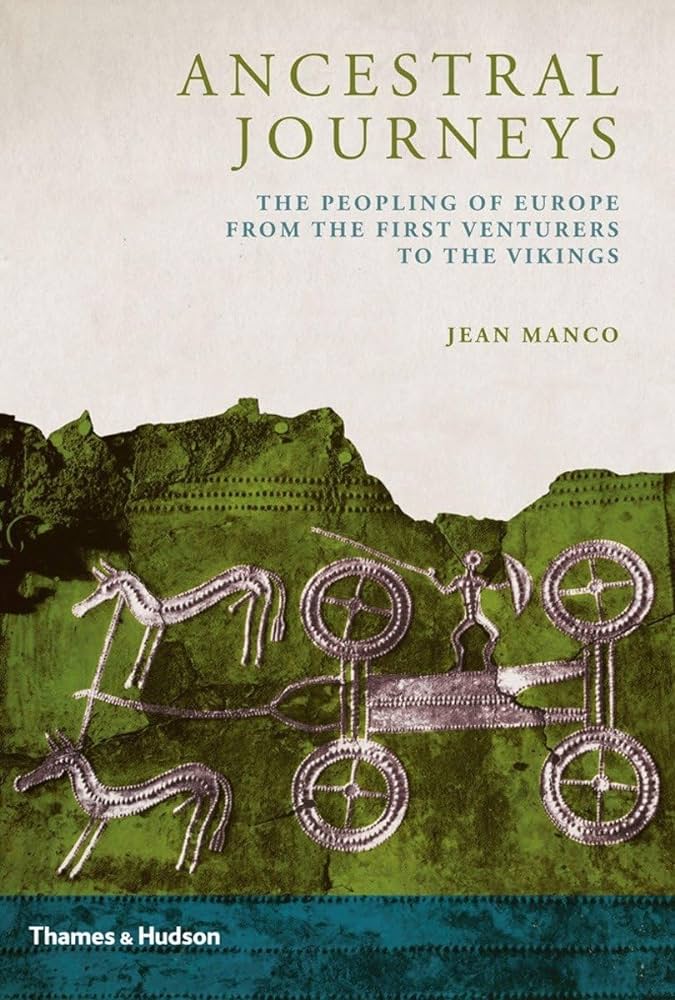
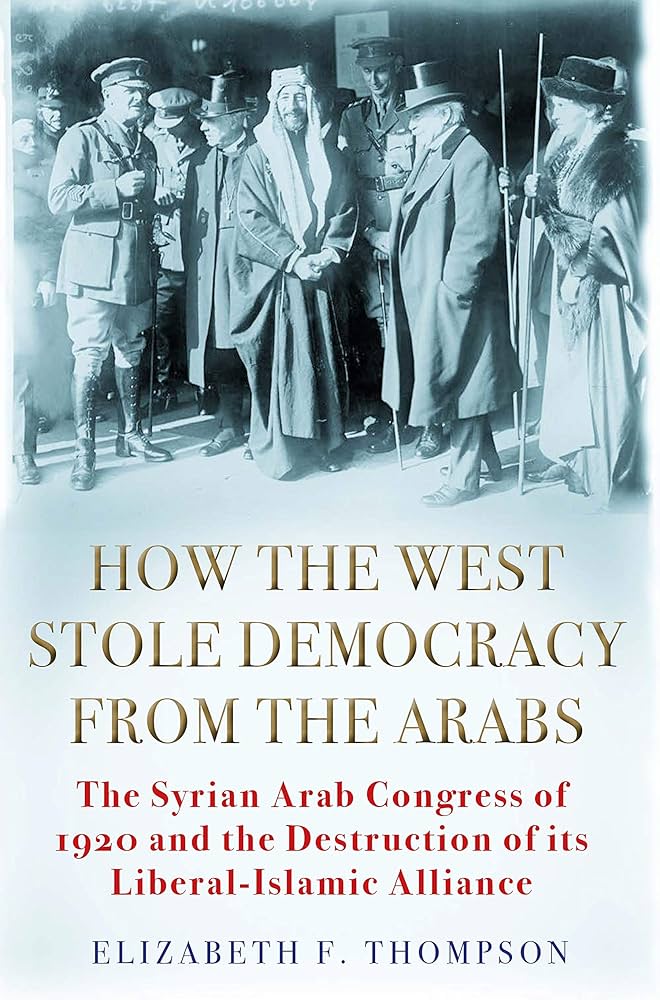
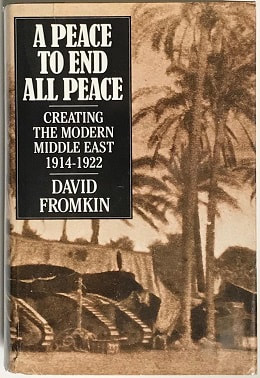
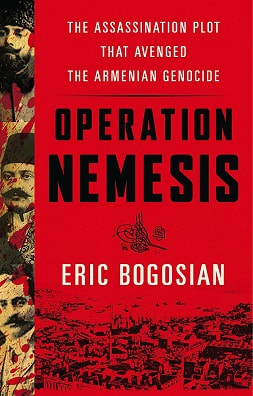
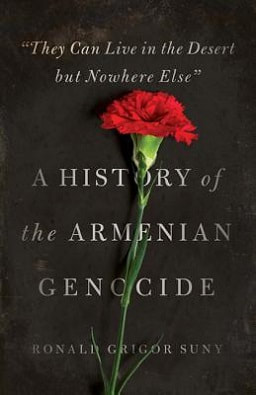
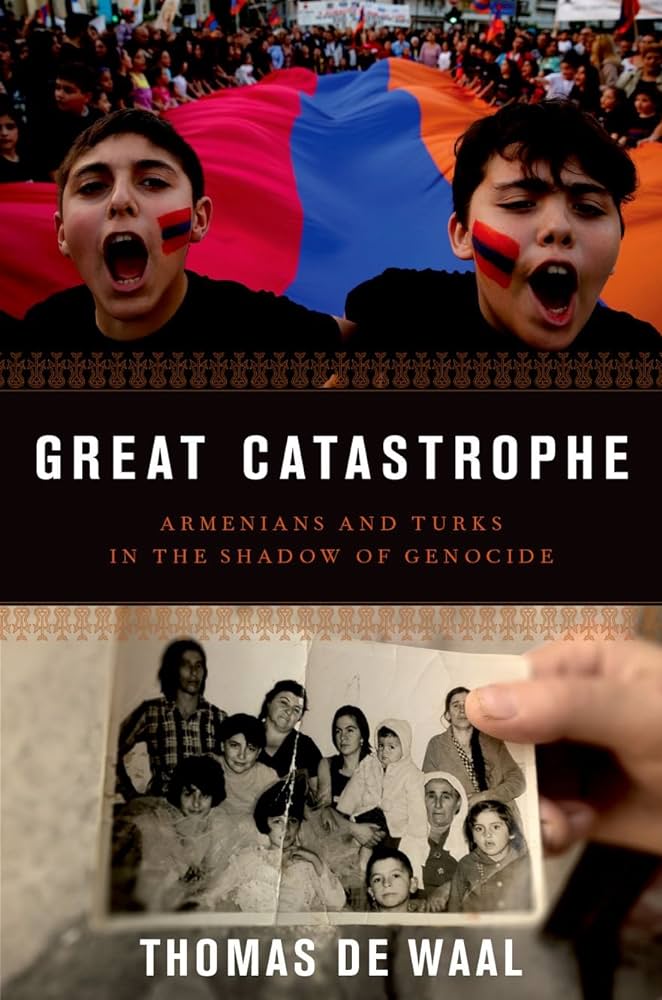
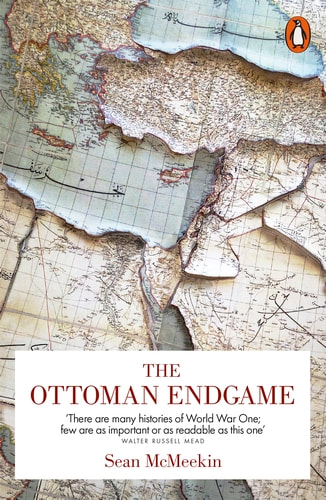
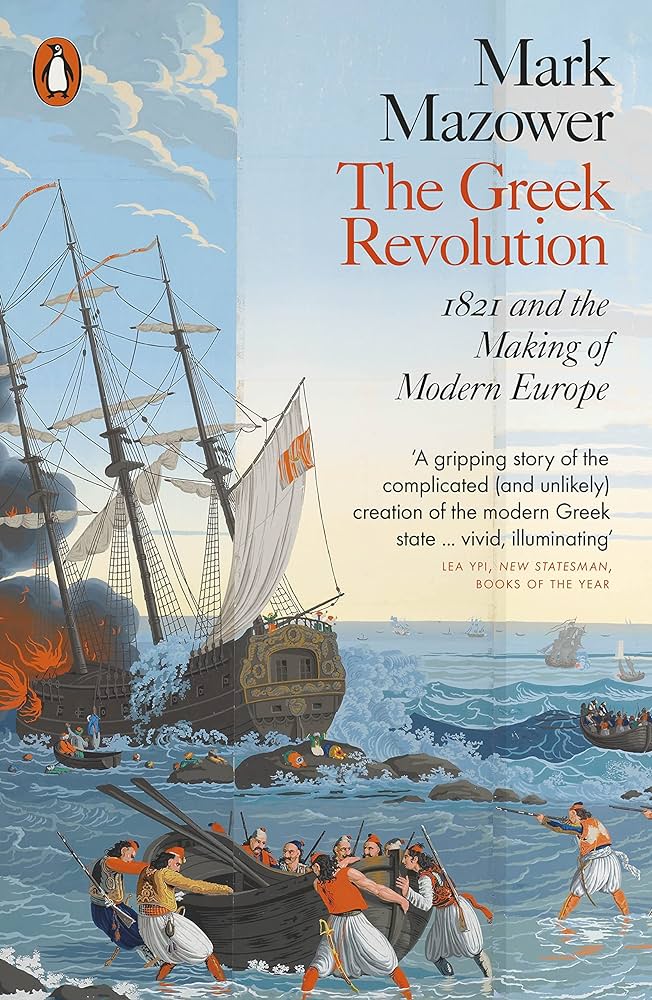
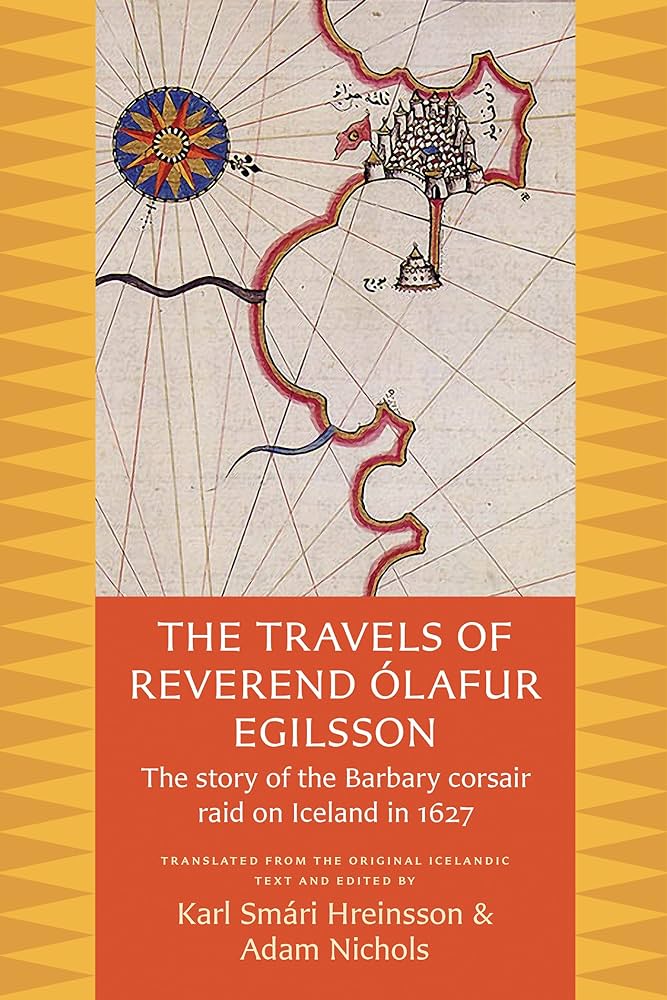
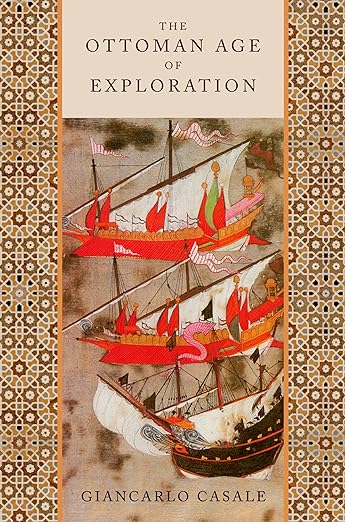
 RSS Feed
RSS Feed